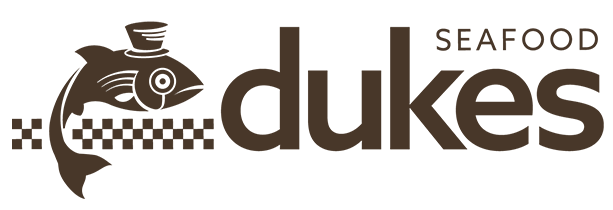Duke’s and Stewardship Partners, a “Dirty” and Delicious Partnership
SEATTLE, Wash. (April 3, 2018) – Duke’s Seafood & Chowder, serving the freshest-tasting sustainable seafood for more than four decades, is featuring two wineries with the Salmon-Safe label throughout April: Chateau Ste. Michelle’s Cold Creek vineyard and Erath. For every bottle of these Salmon-Safe wines sold, Duke’s will donate $1 to Stewardship Partners. Whiskey lovers can also sip and save. Duke’s will also donate $1 for every Whiskey Sour made with Woodinville Whiskey Co.’s bourbon. All three of these companies practice “salmon-safe” farming techniques and are matching Duke’s donation dollar-for-dollar.
Digging in the Dirt to Save River Beds
Each year, Duke’s partners with Stewardship Partners, a non-profit organization helping to promote “salmon-safe” farming practices. “Things like switching to drip irrigation, which saves water, and tricking pests into eating something else, which reduces their dependency on pesticides,” says David Burger, executive director of Stewardship Partners, an organization engaging Puget Sound communities as caretakers of their land and waterways. Stewardship Partners co-manages the Salmon-Safe program in Puget Sound.
In addition to showcasing Salmon-Safe wines this month, the Duke’s team is getting down in the dirt. On April 18th, Duke’s 21 managers, chefs, and even Duke Moscrip, founder and chief innovator, will shovel dirt and plant trees alongside Stewardship Partners volunteers to help restore salmon habitat on the banks of the Snoqualmie River. “Restoring these river beds are critical to the preservation of the salmon runs in our state,” says Moscrip. “We’ll be planting native trees and shrubs to enhance salmon habitat along the Snoqualmie River, the last stronghold for wild Chinook salmon in King County. Everyone wins, the fish, the local farmers, and salmon-lovers.”
Sustainable “Appeteasers” to Entrees Featured
This month, Duke’s is also celebrating our love of sustainable with unique specials you won’t find anywhere else: smoked salmon dip baked with imported cheeses, Dungeness crab salad with Bibb lettuce and teardrop tomatoes, Australian grass-fed burger with sautéed shiitake mushrooms and a peppercorn dipping sauce.
To learn more about joining in on the planting, visit Stewardship Partners’ volunteer calendar for a planting event near you. www.stewardshippartners.org
About Duke’s Seafood & Chowder:
Duke’s Seafood & Chowder began in Seattle, Washington in 1977 as Duke’s Bar & Grill. Founded by Duke Moscrip, the company now owns and operates seven restaurants in the Puget Sound area that focus on wild, sustainable, organic, hormone and antibiotic-free, and natural ingredients. Today it remains family owned and operated with son John Moscrip as a partner. Crafting the menu is long-time Executive Chef “Wild” Bill Ranniger, renowned for both his culinary skills and wild creativity.
Beyond its four-decade history, Duke’s has received numerous honors for its food and practices, including three-time winner of The Seattle Chowder Cook-Off. A leading force in sustainable food, Duke’s received the highest seafood restaurant rating in the State of Washington by Fish2Fork and is among the first restaurants in Seattle to be recognized with a 100 percent volume compliance sustainable seafood rating from Smart Catch, a program designed to promote sustainability and raise consumer awareness about sustainable seafood options.
About Salmon-Safe
Salmon-Safe works across the West Coast through our Partner Network. Established at our Salmon-Safe Summit in 2007, the Partner Network consists of place-based conservation organizations as well as collaborating certification organizations. Founding organizations Stewardship Partners, Oregon Tilth, and LIVE have been joined by Pacific Salmon Foundation, Fraser Basin Council, Demeter, Vinea and Trout Unlimited. Salmon-Safe seeks to extend the range of the Network in key agricultural and urban watersheds throughout the West Coast range of Pacific salmon.
About Salmon River Bed Restoration
Lack of healthy river habitat remains one of the Chinook’s biggest challenges. By planting native trees and shrubs along the banks of the Snoqualmie, we are providing shady spots where fish love to hide and reducing farm runoff because the tree’s roots act like filters. Local farmers also benefit from a healthy riparian buffer because it helps control the flooding of their land.
About Gaining Salmon-Safe Certification
Salmon-Safe offers a series of peer-reviewed certification and accreditation programs linking site development land management practices with the protection of agricultural and urban watersheds. Whether the site is a biodynamic farm in northern California, a Walla Walla vineyard, or a downtown Seattle commercial development, certification requires management practices that protect water quality and restore habitat. Most recently, Salmon-Safe has introduced innovative new programs focused on site design and development, as well as accreditation programs for developers and for pollution prevention in large-scale construction management.
Contact: Cheryl Engstrom, Engstrom Public Relations, 425-487- 0682, cheryl@engstrompr.com
